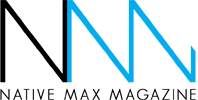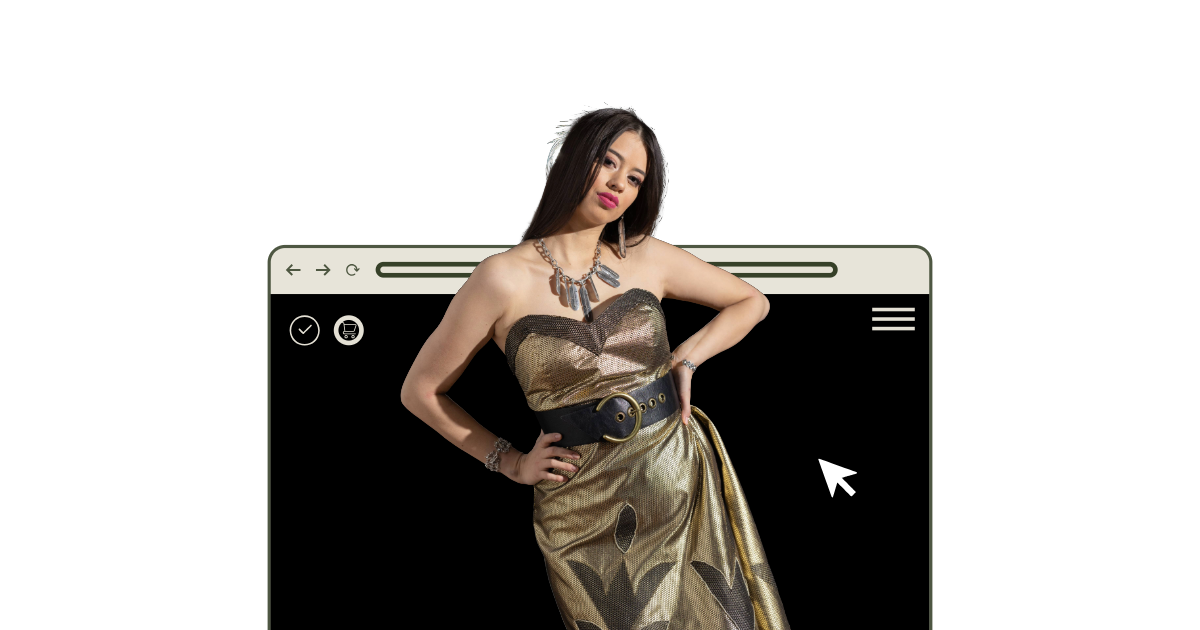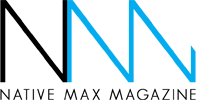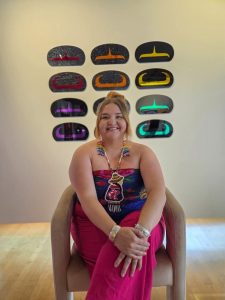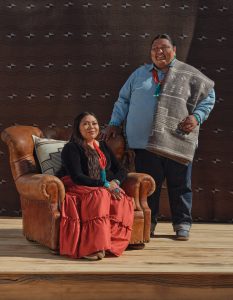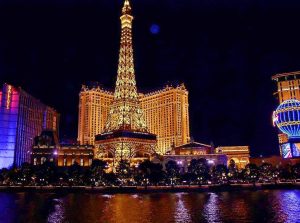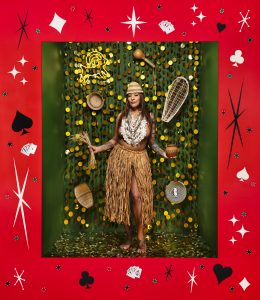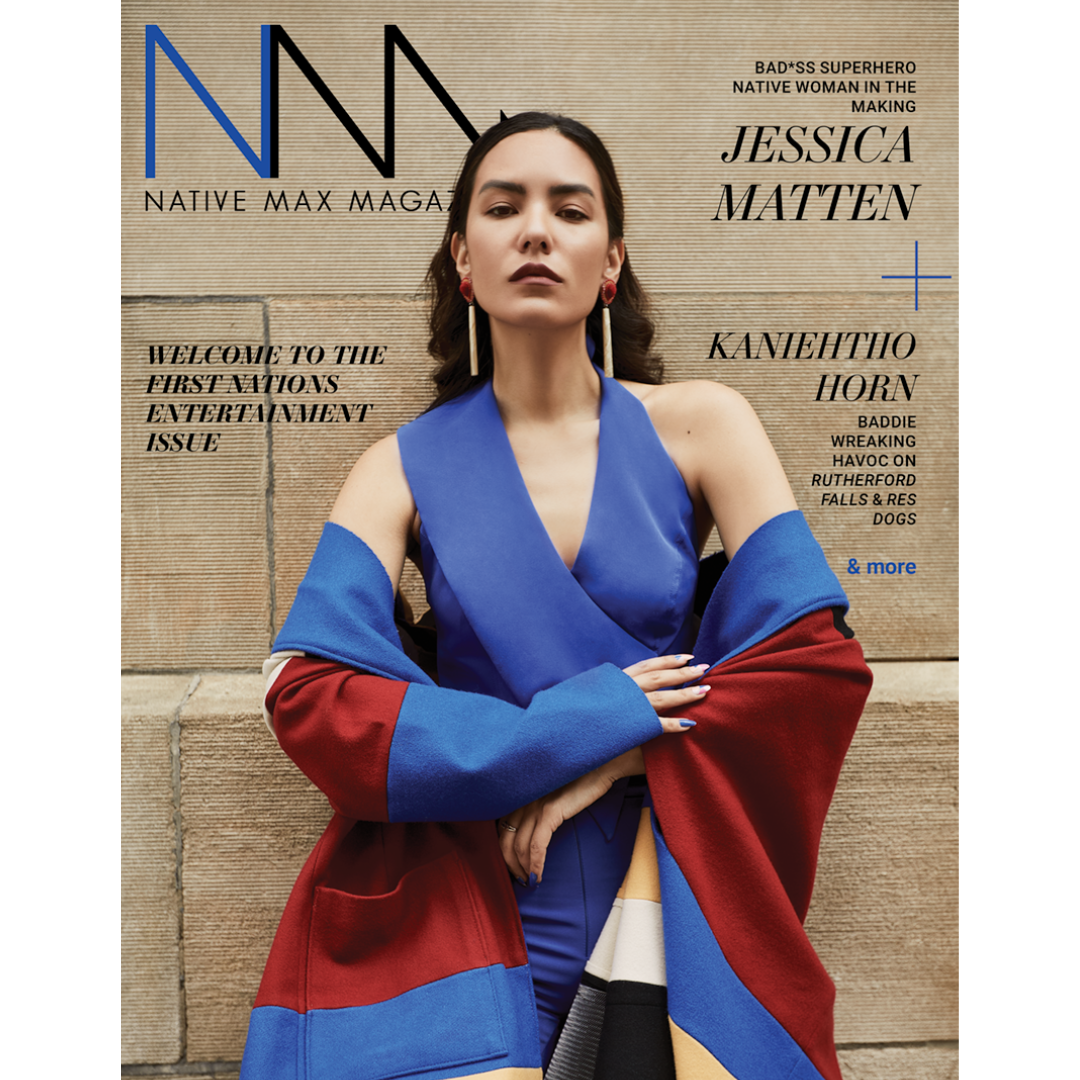Select a subscription plans
You need a subscription to access this content.
Photographer Anthony Thosh Collins and part-teacher-part-journalist Chelsey Luger seem to have a lot in common. Both grew up playing sports and both, admittingly, weren’t healthy at one point or another in their lives. However, within the last few years, Thosh and Chelsey have decided to turn to a more healthy and active lifestyle and wanted to help Native communities as well. We talk with the powerful pair about their fitness journeys, the idea behind Well For Culture and how they use their respective platforms to help promote the wellbeing of Indian Country.
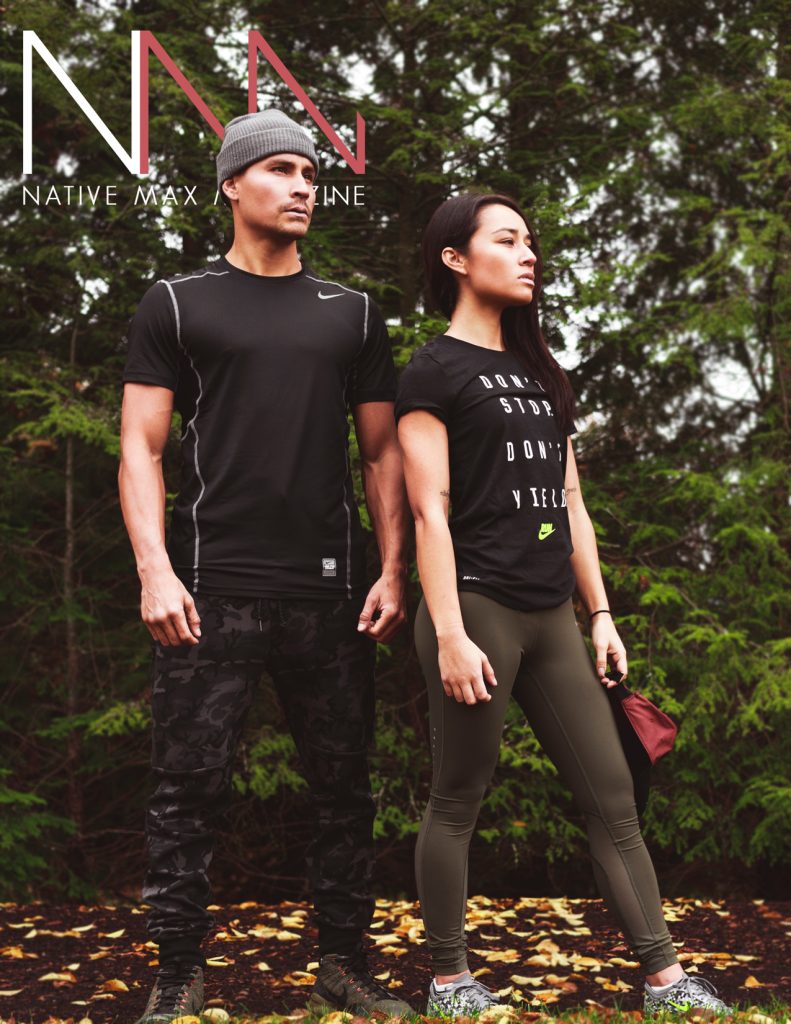
Native Max: Were you both always active your whole life?
Thosh: Yes when I was a teen I always played basketball and was into break-dancing until my early 20’s, then I started getting into combat sports and learning about functional fitness.
Chelsey: Yes. Growing up I played all sports and was a ballet dancer. I started getting into fitness and training when I was in my early 20s living in New York City.
NM: Can you explain a time where you were unhealthy? On the way to being healthy physically and mentally, did you feel like giving up?
Chelsey: I used to party like a maniac in my college years and early 20s! I think there was also a phase where I was a lot more materialistic and superficial or insecure as well. I was never entirely inactive or “let myself go” as they say but I did have a few moments where I was like “dang” because I’ve seen all the damage that alcohol and drugs have done to my family and community, and at some point, I decided to reject it completely. I was like screw this, I’m not going to put another ounce of energy or support into this destructive liquid that is so antithetical to my cultural and familial values! So the fact that I had a few really bad hangovers actually has helped me in the long run, because it made me think really hard about the idea of wasting even one good day of my precious life on self-induced sickness, and I didn’t want to do it anymore. So I dropped it and I’ve never looked back. I love being healthy and alive with a fully intact mind and spirit.
Thosh: Through my years of college in San Francisco and living in Los Angeles and being in my early 20’s I kind veered off my path of being well; I’m 33 now and still recovering from that stage. I knew I was living out of balance and always knew I’d get back to living well, I just didn’t know when. There was a time when I couldn’t imagine being able to go out and have fun without having a drink or going out to eat and not craving something junky. But as time went on I experienced things in life that left with no choice but to put that all away, luckily I was not as bad as I thought and was able to just say to myself, “nah, I don’t need any of that stuff in my life. I’d rather be a part of something big and for the people”. And so I quit drinking and occasional using, from there I attracted a whole new set of people in my life; it’s just the way the universe works.
“If I stay strong in a holistic way: mentally, spiritually, emotionally, and physically, I will be strong for my people and my family, and that’s a mission I take seriously.”
NM: Thosh, explain your work with Native Wellness Institute.
I first became involved with NWI when I was a teen, I used to attend their native youth leadership conferences with a youth group from my rez. They’ve had a huge impact on my idea of native holistic wellness. As I got older I moved on to college, veered off that path, got back on and found myself involved and giving back by working with NWI––they took me in and to teach me the ropes. I became a board member in 2012.
NM: Could you explain your mission of “indigenizing” fitness and diet. Is it at all difficult to spread the wellness movement across Indian Country?
Thosh: Indigenizing fitness is a state of mind as much as it is a practice; it is being conscious of the idea that being a productive indigenous person also requires a certain level of health; incorporating cultural values to your fitness ethic; being aware of your surroundings and being able to adapt to any environment to exercise your body. My mission is to spread that way of life by leading by example; collaborating with other like-minded people and using social media to popularize it. It can be difficult to spread this message when there is so much to compete with for our people’s attention––there are a lot of distractions in popular culture but I have faith that the spirit of wellness will reach more hearts and minds.
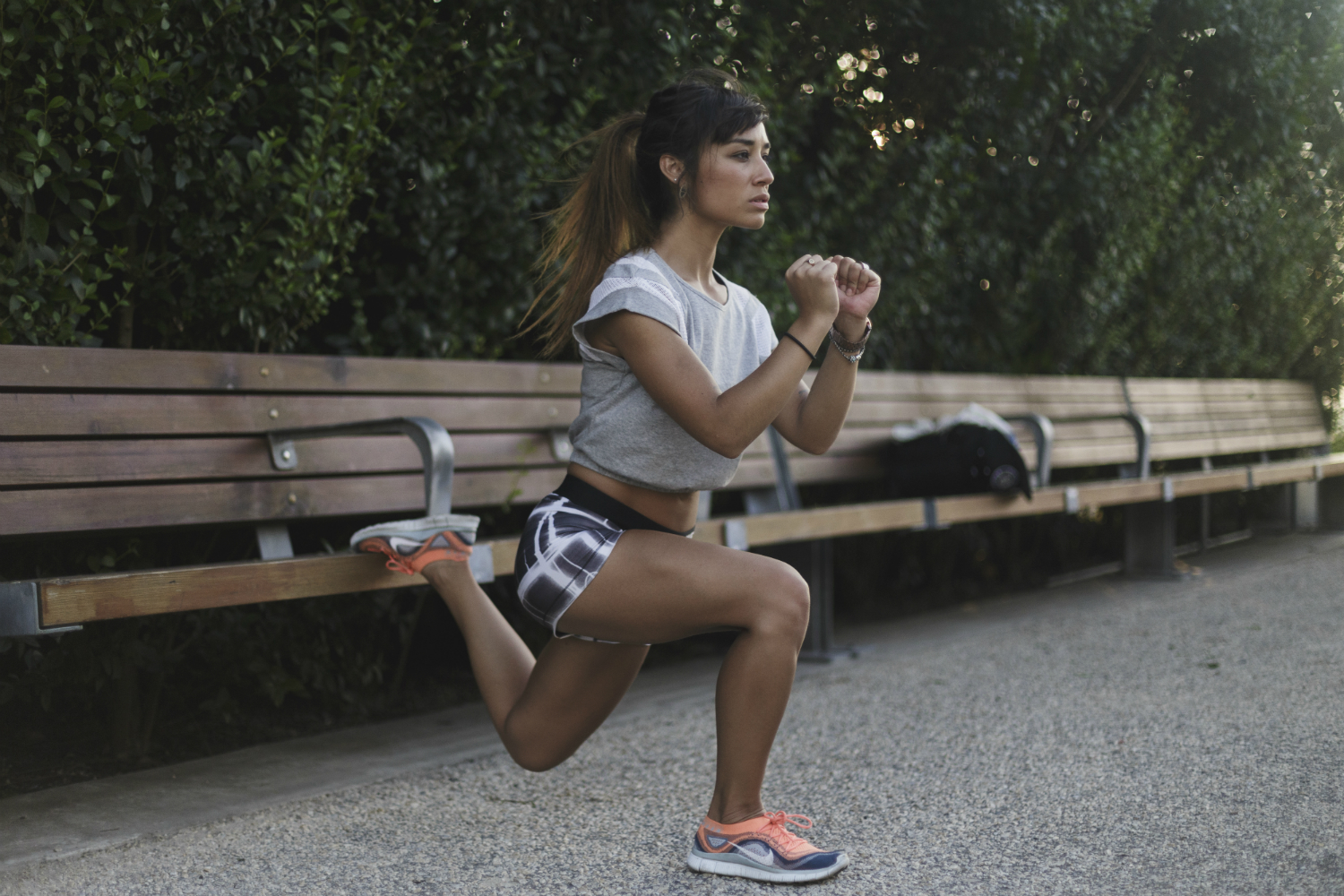
NM: How do you both use your current professions or careers to address health concerns across Indian Country?
Thosh: I’m a photographer, it was always part of my business’s mission to help portray native people in a positive light, but recently I’ve focused more on producing stylized images of native people in fitness. The idea is to help contribute to the shift in consciousness of whole and healthy native people and create more awareness through photos and videos. I produce all the photography that we use on Well For Culture.
Chelsey: I am a journalist and writer, and I also teach and work with Native students at the undergraduate level. In my work with students, I am always paying attention to their habits: not just their struggles, but the areas in which they excel. My students teach me every day how to better connect with the younger generations, they offer insight into what they need or what they’d like to see happen in our communities, and have helped me to realize how possible and tangible it is to connect with and influence the youth in a positive way through tools like social media.
As a writer with access to both Native-focused and mainstream publications, I use my platform to promote and spread information about Indigenous health and wellness. There are a ton of incredible things happening all over the world regarding health, wellness, and Native strength, and I want to share those stories so that everybody can be reminded that we’re not just a downtrodden people experiencing postcolonial peril. We are powerful. Sometimes even we forget that ourselves, but it’s important to always remain optimistic and positive and ready to develop and grow. My writing skills also come in handy while creating content for the website: every little thing needs a text edit, whether it’s a long blog post or a little blurb under one of our YouTube videos. I’m the go-to for that.
NM: Why is it important for you to be healthy and fit?
Thosh: For me, it’s important to be holistically healthy because I want to be a crucial part of the development of my community’s future: culturally, spiritually and mentally. I want to have a long life, free of diseases and to be able to enjoy my friends and family. I think decolonization also requires indigenous bodies to be well, not just mentally, emotionally, spiritually but physically as well, I think that concept often gets left behind. It was always normal for our ancestors to be in pretty good health. The indigenous approach is not so much about putting emphasis on looks/cosmetics. I think our society is too obsessed with looking ‘fit’ and I see how that causes implications with body image in the native country. Looking ‘fit’ doesn’t always mean a person’s body is healthy and whole with a clear mind and good heart, nor does it ensure someone is a crucial component to nation-building. If anything being ‘fit’ is simply a side effect of living well and a life of purpose. That is the decolonized/indigenized approach to fitness.
Chelsey: Taking care of yourself and not making other people worry about you is the best way that you can take care of others. I firmly believe that. If I stay strong in a holistic way: mentally, spiritually, emotionally, and physically, I will be strong for my people and my family, and that’s a mission I take seriously. It’s also about self-respect and self-love. You gotta love yourself and take full advantage of the gift of life. Show yourself what you can do with your time. Push yourself. Challenge yourself. I like being a strong lady – I’ll admit that!

NM: What’s your daily exercise and meal plan? Do you have any go-to moves or exercises?
Thosh: My daily exercise depends on my energy level. I work from home and so I also like to work out at home as well as going on the land or to the fitness center on the rez. I usually start off with a dynamic warm-up or I shadow box, then I do some kinda animal flows, those always get my heart rate up and warm up the muscles. Then I usually swing around some kettlebells, a steel mace or do some bodyweight flows on a pair of parallel bars that I made. I use lots of callisthenic exercises in my regimen because it really challenges the body. As for meal plan, I don’t really have a strict plan I stick to, the overall plan is to just cook and eat real foods/ native foods and to make sure I have enough protein to calories ratio. I travel a lot so sometimes I have to compromise my choices, and I’m ok with that. Being too strict will lead you to ‘falling off ’ your diet at some point. By changing your food desires to real food and seeing food as energy, but being ok with compromising your diet choices once in a while is a fine line, but I’ve found that you get more longevity that way.
Chelsey: It depends on the day! I don’t get too locked into routines – I can’t because I’m always traveling and always changing things up. The past 6 months I was really into home workouts, training in my living room, bodyweight exercise and pilates. But now I’m ready to get back in the gym and get more into weight training again and maybe even some kind of boxing or martial arts. In the past, I’ve been through yoga phases, heavy weight training phases… it really is a matter of circumstance. I just do whatever kind of exercise is going to make me happy that day and I listen to my body and do what I think it needs and I try to challenge myself. People come up to me and think that I spend hours a day in the gym, but it’s not even like that. If I get in a good workout 3 or 4 times a week I’m happy. Of course, I have my lazy days too – we all do. I don’t beat myself up over it. I just do what feels right and what’s fun, and it’s been working out well for me so far. I have some long-term goals that I’m going to be approaching more seriously soon. I definitely don’t have a meal plan, I can’t ascribe to something so rigid. It doesn’t work with my personality. I just try to eat clean and ancestral as often as possible. I snack a lot. I love anybody who is willing to cook for me because I don’t like to cook. I’ll do the dishes!
NM: Do you have any idols or persons of inspiration you look up to?
Chelsey: Too many to list. That’s what it’s all about – drawing strength and influence from those who came before us, putting in our all for those who will come after us. And surrounding ourselves with people who will contribute to the healthy energy and positivity that we work hard to protect. I guess I think about everybody – all of the thousands and millions of people who have struggled so that I can be here – and I try not to let them down.
Thosh: I have so many people who inspired me throughout my short time of living. I think it’s very much important for everyone to have mentors to learn from and consult with. I would not be the same person had I not had mentors guiding me through this crazy world.
NM: What keeps you motivated and on track?
Chelsey: My family and community are always huge motivators because I want to make them proud and represent them well. I’m also inspired by my readers and viewers: every time I get a message that somebody was influenced positively by one of my articles or something on the website, it’s a reminder to keep going. Then there’s integrity: I recognize that I have a platform to set an example for other Native women and youth, and I take -that very seriously. And Thosh, of course! He’s the best friend and partner I could ask for. We make work fun, and we share an undying passion for wellness. Our partnership helps me a lot with staying on track. We each have our role and I’m determined to play mine to the best of my ability. To be honest, the work in and of itself is almost easy to do, because I never wake up feeling like I’m wasting my time. I always know that it’s worthwhile.
Thosh: What keeps me motivated is the people I surround myself with, physically and the cyber world. Everyone I associate with is productive and doing big things, that really motivates me to stay well. Chelsey is a big part of my inspiration, we share the same vision and she’s very talented and motivated on this journey; I can always rely on her! I also find much inspiration from learning about our cultural values and how brilliant our native ancestors were; I’d love to be a part of that continuum.
NM: Is there anything you’d like to add or like to let the readers know?
Chelsey: I just want to emphasize that wellness is a journey. We don’t have all the answers, nor do we claim to, but we’re trying very hard to create a space for creative learning and positive inspiration. I just want to see everybody give wellness a chance. Think about this stuff. Take it seriously. It’s not just about looking cool, it’s about nation building and solidarity, and that’s huge.
Thosh: I would like to encourage everyone to continue on a life of purpose, become self-actualized, see yourself a part of something big; get involved with efforts to spread wellness and re-install cultural values. Our ancestors did that for us, now let us do it even better for our next generation! Let’s put our hearts and minds together to find our way once again for the sake of protecting our way of life, future generations, and our precious mother earth!
